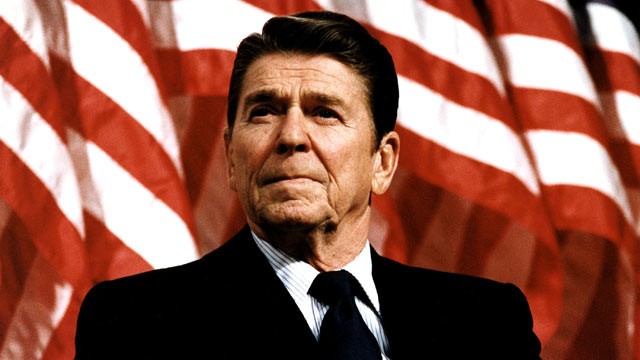
In a 2014 Quinnipiac poll of American voters, those surveyed concluded that President Barack Obama has been the worst president in post-World War II history. They ranked President Ronald Reagan, icon of so much Republican rhetoric in this (as in every other) election year, as the greatest. It isn’t hard to dismiss this sort of faux information as meaningless, but I must admit that a wave of dark energy coursed through my veins.
It made me want to hold a nationwide webinar where I show America how, under Obama, unemployment is well below where it was when the recession started and how deficit spending is down.
I want to remind Americans that millions more Americans can live without the fear of losing everything due to illness.
Then I want to show them stock market graphs, deficit gaps, and unemployment figures from 2001 through 2009 and ask them again: “Who was the worst president?”
As troubling to me as the Obama-fail was in the poll, even more troubling was the Reagan canonization.
The Legend of Reagan grows because the Republicans have not had a legend since Lincoln. They marginalized Eisenhower during his eight years of presidential prosperity because America had also moved to the left, and Republicans created a more extreme ideology in order to define some relevance — ergo the second Red Scare, McCarthyism, Goldwater conservatism, and the great alliteration himself: The Ronald Reagan Republican Revolution.
I contend that Reagan’s greatness is a fable woven from selective memory to put a noble face on failed policy.
To be sure, in 1980 (Jimmy Carter’s last year in office) inflation averaged a very high 12.5 percent, and America was heading into a recession. Carter’s failed economic policy was the perfect platform for the Reagan myth to begin upon. Reagan immediately implemented supply-side economic policies — which meant tax cuts across the board — and expanded the tax base to offset the resulting revenue loss.
“Reaganomics” entered our lexicon, and certain economic indicators began to improve. During Reagan’s administration, the unemployment rate averaged 7.5 percent over eight years, after reaching a high from the recession in 1982 of 10.5.
Reagan’s legacy was set halfway through his first term, because he was the man who lowered taxes and turned the tide of recession. Production was up, unemployment was down. Mount Rushmore couldn’t be far behind!
But there was a virus deep within Reagan’s great plan: There wasn’t enough revenue to pay for his defense initiatives and for the government programs that he supported. So along came the Tax Equity and Fiscal Responsibility Act of 1982, the largest peacetime tax increase in history.
He then sold Congress and the American public on the Tax Reform Act of 1986, which “simplified” the tax code while raising the bottom bracket tax rate by four percent and lowering the top rate another 22 percent. In theory, he could say that they were tax cuts, since the total percentage was lower, but the new tax burden fell to everyone but the wealthy.
Democrats were on the Trickle Down Train, as well — proof of the historical journey toward oligarchy that has seen a 250 percent increase in the wealth of the upper class over the past three decades.
It must be said that the widening gap between the rich and poor had already begun during the 1970s, before Reagan’s economic policies took effect. However, it must also be stated that Reagan’s policies exacerbated that trend. When Reagan left office there were 7 million more Americans living in poverty than when he started.
Reagan remains popular as the anti-tax hero despite raising taxes 11 times over the course of his presidency — in the name of fiscal responsibility. Overall, the 1982 tax increase undid about a third of the 1981 cut. Even Reagan admitted that his greatest regret was having tripled the national debt and turning the United States into a debtor nation for the first time.
Reaganomics was a short-term fix with long-term negative consequences. The proof of Reagan’s successes and failures will not be revealed by polls, party rhetoric, or platitudes. They are there for serious-minded people to view and decide for themselves.
Greatest president since FDR? Depends on your income.
Gary Kroeger is a former member of the Saturday Night Live cast, now an advertising executive in Iowa and a Democratic candidate for Congress. This essay is condensed from a version posted on his blog.